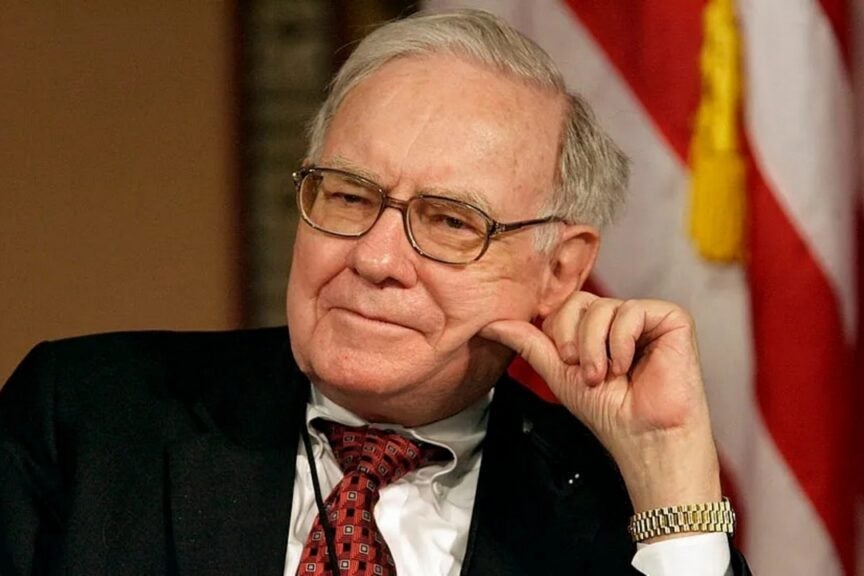Warren Buffett’s Pilot Company Shifts Strategy: A New Era for US Oil Operations
In a bold and unexpected move, Warren Buffett’s Pilot Company has announced its decision to exit the global oil trading sector, redirecting its focus toward domestic operations. This strategic shift marks a significant change in the company’s approach to the energy market, raising questions about the future landscape of oil trading and Buffett’s long-term vision for energy in the United States. As the oil industry grapples with fluctuating prices, environmental regulations, and geopolitical tensions, this pivot could signal a new era for U.S. oil operations.
The Background of Pilot Company and Its Role in Oil Trading
Founded in 1958, Pilot Company has grown from a single gas station in Virginia into one of the largest suppliers of fuel and related services in North America. Over the years, the company expanded its operations into global oil trading, becoming a notable player in the market. With Warren Buffett’s Berkshire Hathaway acquiring a significant stake in the company, Pilot enjoyed an influx of resources and strategic guidance.
Under Buffett’s stewardship, Pilot Company diversified its operations, exploring various avenues within the oil and gas sector. However, the volatility of global oil prices, coupled with increasing scrutiny over fossil fuels and environmental sustainability, posed significant challenges. This backdrop has likely influenced the decision to refocus on domestic markets, where stability and predictability may offer a more reliable path forward.
Reasons Behind the Strategic Shift
Several factors have contributed to Pilot Company’s decision to exit global oil trading:
- Market Volatility: The oil market has been notoriously volatile, with prices fluctuating dramatically due to geopolitical tensions, natural disasters, and changes in supply and demand. By concentrating on domestic operations, Pilot can mitigate some of these risks.
- Regulatory Pressures: Increasing regulations aimed at reducing carbon emissions have placed immense pressure on fossil fuel companies worldwide. By shifting focus to domestic operations, Pilot can align itself with evolving regulatory landscapes and potentially benefit from incentives for cleaner energy alternatives.
- Environmental Concerns: As public awareness of climate change grows, companies within the oil sector are being scrutinized for their environmental impact. Focusing on domestic operations allows Pilot to develop more sustainable practices and potentially invest in renewable energy sources.
- Long-Term Stability: The U.S. oil market, while not without its challenges, tends to offer more stability compared to international markets. By concentrating efforts domestically, Pilot can capitalize on this stability.
What This Means for the U.S. Oil Market
Warren Buffett’s Pilot Company shifting its strategy could have far-reaching implications for the U.S. oil market:
- Increased Investment in Domestic Infrastructure: With a renewed focus on domestic operations, Pilot may invest more heavily in U.S. infrastructure, including refineries, pipelines, and distribution networks. This could help bolster the domestic supply chain and improve efficiency.
- Potential for Job Creation: As Pilot Company scales up its domestic operations, there is potential for job creation within the energy sector. This could contribute positively to local economies, particularly in areas that rely heavily on the oil industry.
- Shift Toward Renewable Energy: By focusing on domestic operations, Pilot may explore investments in renewable energy sources, aligning itself with national goals for reducing reliance on fossil fuels and transitioning to cleaner energy.
- Influence on Market Dynamics: As one of the largest players in the U.S. oil market, Pilot’s strategic shift could influence pricing dynamics and competition within the industry.
Warren Buffett’s Vision for Energy
This strategic pivot raises questions about Warren Buffett’s broader vision for energy. Known for his long-term investment approach, Buffett has often emphasized the importance of adapting to changing market conditions and consumer preferences. His decision for Pilot Company to exit global oil trading might indicate a belief that the future of energy lies in domestic stability and sustainability.
Buffett has historically advocated for prudent investment in sectors that promise growth while maintaining a keen awareness of the risks involved. As the world increasingly shifts toward renewable energy and sustainability, it is likely that Buffett sees a future where companies must adapt or face obsolescence. By concentrating on U.S. operations, Pilot Company could position itself as a leader in the transition to more sustainable energy practices.
Industry Reactions and Implications
The oil and gas industry has reacted cautiously to Pilot Company’s announcement. Industry experts speculate that this could lead to a wave of similar strategies among other major players. As companies reevaluate their positions in global markets, there may be a trend toward focusing on domestic operations to ensure stability and sustainability.
Some analysts have voiced concerns that this shift may lead to increased prices for consumers in the short term, particularly if domestic supply struggles to meet demand. However, others argue that by investing in domestic infrastructure and potentially transitioning to renewable sources, Pilot could help stabilize prices in the long run.
Conclusion: A New Era for U.S. Oil Operations
Warren Buffett’s Pilot Company has embarked on a transformative journey with its strategic exit from global oil trading and focus on domestic operations. This decision not only reshapes the company’s future but may also have significant implications for the U.S. oil market. As the industry navigates the complexities of a changing energy landscape, Pilot’s pivot offers a glimpse into a potential new era characterized by increased stability, sustainability, and a thoughtful approach to energy consumption.
Ultimately, as the world continues to evolve, the actions of industry leaders like Warren Buffett will play a crucial role in shaping the future of energy. By embracing change and focusing on domestic opportunities, Pilot Company is poised to lead the charge into a new chapter for U.S. oil operations.
See more Business Focus Insider Team

